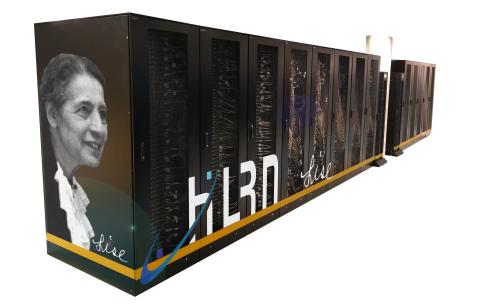The Supercomputing department conducts interdisciplinary research in the areas of hardware and software technologies for high-performance computing and scientific computing.
The Algorithms for Innovative Architectures group develops in close cooperation with technology providers, domain scientists, and the NHR Center at ZIB (NHR@ZIB) new methods to unlock the capabilities of new and energy-efficient technologies for various scientific disciplines such as life science, chemistry/material science, and numerical mathematics. Our work focuses on computer architectures with heterogeneous configurations both at the processor level, i.e., accelerators (GPU, FPGA, Vector Engines, AI processors) connected to standard CPUs, as well as at the memory level, i.e., system platforms with high-bandwidth memory (HBM) on processors, with storage-class memory (e. g. NVRAM) on a server node and with distributed NVMe storage with a compute cluster system. We design and implement new algorithmic approaches for these technologies and support application developers in integrating our proposed solutions into their programs.
The Dynamics of Complex Materials group develops new methods for the simulation of complex materials and molecular systems. One focus of our work is the development and implementation of highly parallel and scalable computational algorithms for innovative HPC architectures.
We evaluate various innovative compute and storage platforms equipped with GPUs, FPGAs, Vector Engines, and memory technologies such as on-chip high-bandwidth memory (HBM) and storage-class memory (NVRAM), in combination with software frameworks such as object stores like DAOS.
New research priorities and associated working groups are currently being established.
